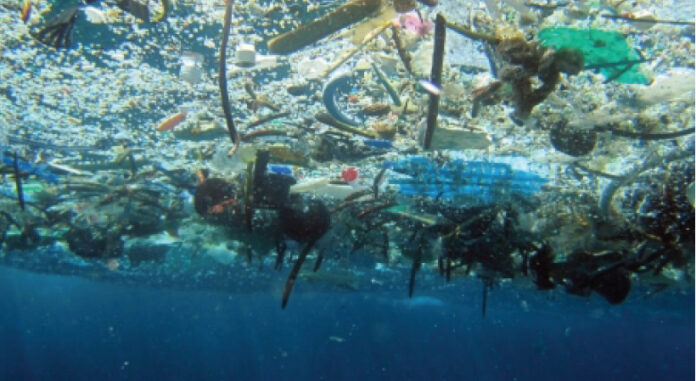
Health care in the United States primarily serves to treat diseases, but it should also promote health. In the era of climate change and industrialization, promoting health takes on new dimensions and urgency as rampant pollution threatens health in more immediate and visible ways. This includes increased death, injury and subsequent health challenges caused by heat waves, fires, wildfire smoke and floods, but also in more insidious ways, such as with the spread of harmful chemicals, like those used in plastics.
To help address the climate crisis, the health care industry must lead the way in curbing greenhouse gas emissions and rejecting chemicals of concern.
The disproportionately heavy resource consumption of the nation’s health care system has been tolerated without consideration at a cost to society at large. This has landed us in a medical system with high-tech therapies for those who qualify and an endless assortment of disposable supplies. In fact, health care organizations in the U.S. produce approximately 14,000 tons of waste each day, of which an estimated 3,500 tons is plastic waste. Single-use plastic products in hospitals may include everything from eating utensils and disposable gowns to intravenous-fluid bags and tubing.
Plastics have detrimental effects on human health, including increased rates of cancers, respiratory issues and cardiovascular diseases. Plastics are also endocrine disruptors, impacting the hormones that shape how we function. Furthermore, plastics don’t go away. Instead, they break up into microplastics and nanoplastics, which are now found in oceans, rivers, soil, drinking water and air, as well as in marine and terrestrial animals and human tissues, even in breast milk.
Given that plastics and microplastics persist, we are at risk of an increase of these pollutants in our bodies, impacting our health and the health of our children over time as they continue to accumulate in our land, water, air, food. A recent study noted that having microplastics in the cardiovascular system was associated with an increased risk of strokes, heart attacks and death.
We must aggressively pursue the use of safer supplies in health care and think about the full impact of our actions within local and global communities. Immediate steps can be taken in our own practices, such as opting for reusable rather than single-use plastic supplies and stewarding tests and prescriptions to improve efficiency and decrease waste.
In keeping with the principle of non-maleficence or “do no harm,” clinicians should demand the use of less harmful materials throughout supply chains. The Food and Drug Administration, the Centers for Disease Control and medical societies must advocate for practices that can drive innovation to create safer materials.
At UC San Diego Health, we have created a sustainability department to help address such issues and are one of the first health systems in the country to have a medical director of sustainability. With a goal of becoming fossil-free by 2045, initiatives include utilizing renewable energy, eliminating single-use plastics by 2030 and stopping the use of desflurane, an anesthetic gas that is 2,500 times more harmful to the atmosphere than carbon dioxide, among many others.
UC San Diego Health was recently recognized by Practice Greenhealth for our efforts toward sustainable practices. We hope this recognition elevates the urgency and necessity of these efforts as there is so much more that needs to be done, and sustainability as a fundamental to health must be prioritized.
There are over 8 billion people sharing this planet, all of us relying on the environment for the foundation of our health. The medical field must invest in environmentally friendly practices — a primary care for the planet. We must ensure that our actions do not compromise the health of people up and downstream, and today and in the future.
Abeles, M.D., is medical director of sustainability and infectious disease specialist at UC San Diego Health and recently published a perspective in The New England Journal of Medicine that focused on concerns regarding the Tijuana River Valley pollution crisis. She lives in San Diego.



